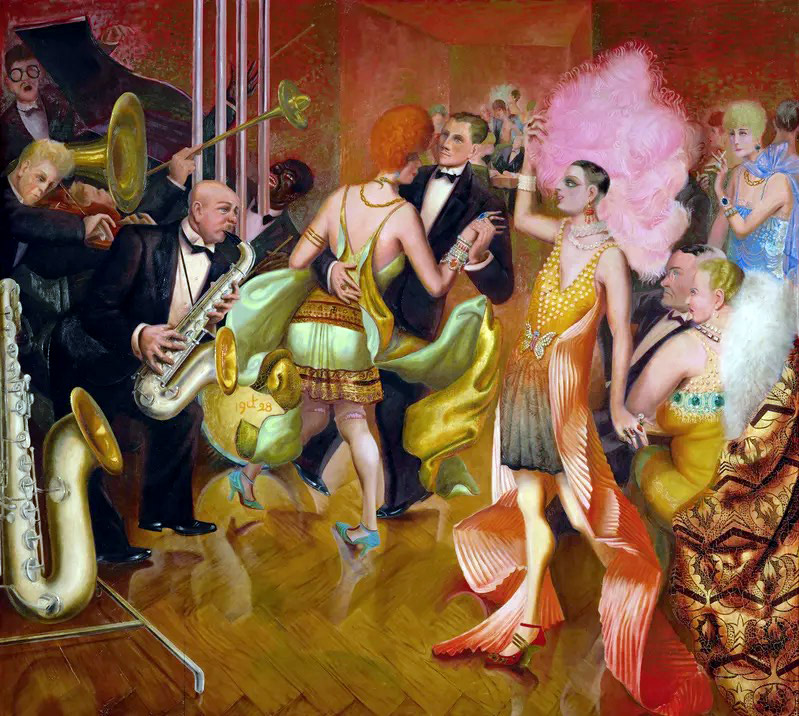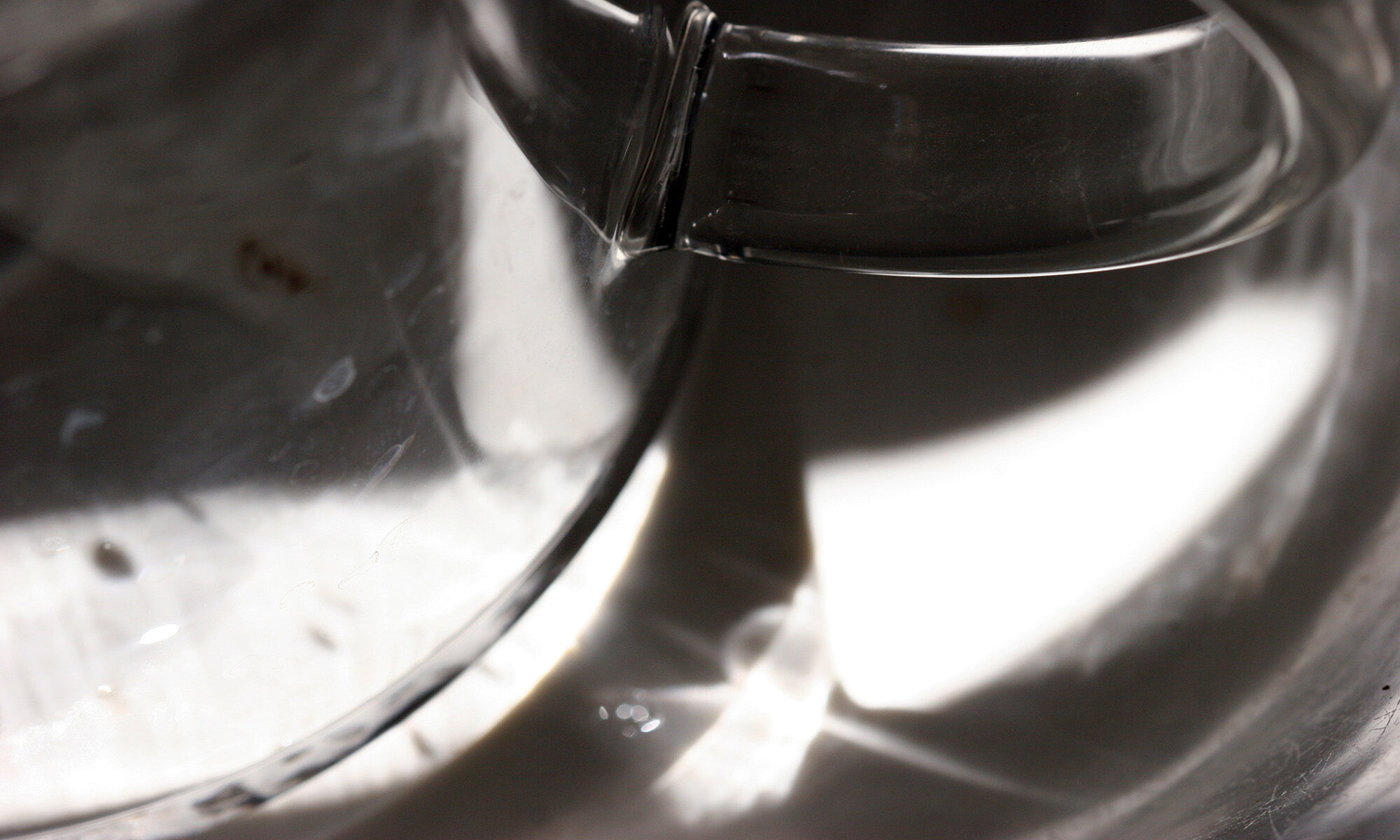Der Sumpf
Manchen der Freunde sah ich, und den geliebtesten
Hilflos versinken im Sumpfe, an dem ich
Taglich vorbeigeh.
Und es geschah nicht an einem
Einzigen Vormittag. Viele
Wochen nahm es oft; dies machte es schrecklicher.
Und das Gedenken an die gemeinsamen
Langen Gespräche über den Sumpf, der
So viele schon birgt.
Hilflos nun sah ich ihn zurückgelehnt
Bedeckt mit den Blutegeln
In dem schimmernden
Sanft bewegten Schlamm. Auf dem versinkenden
Antlitz das gräßliche
Wonnige Lächeln.
The Monster

Just how many constructions can be put on a man’s behaviour was shown recently by an incident at the Russian Mezhrabpom film studios. It may have been insignificant and it had no consequence, but there was something horrible about it. While The White Eagle – a film about the pre-war pogroms in south Russia, which pilloried the attitude of the police at the time – was being shot in the studio, an old man turned up and asked for a job. He forced his way into the porter’s box at the street entrance and told the porter he would like to take the liberty of drawing the company’s attention to his extraordinary resemblance to the notorious governor Muratov. (Muratov had instigated the bloodbath at the time. His was the leading role in the aforesaid film.)
The porter laughed in his face, but since he was an old man he did not eject him straight away, and that is how the long, thin fellow came to be standing, hat in hand, with a faraway look amid the hubbub of extras and studio technicians, seemingly still nursing a faint hope of earning bread and shelter for a couple of days on the strength of his resemblance to the notorious killer.
For almost an hour he stood there, constantly stepping aside to let people go by until he ended up hemmed in behind a desk, and there he was at last suddenly noticed. There was a break in the shooting and the actors headed for the canteen or stood around chatting. Kochalov, the famous Moscow actor playing Muratov, went into the porter’s box to make a phone call. As he stood by the phone he was nudged by the grinning gatekeeper and when he turned he saw the man behind the desk, whereupon peals of laughter rang out all around him. Kochalov’s make-up was based on historical photographs, and the extraordinary resemblance that the old man behind the desk had been telling them about was obvious to everybody.
Half an hour later the old man was sitting with the directors and cameramen like the twelve-year-old Jesus in the temple, discussing his contract with them. The negotiations were greatly facilitated by the fact that Kochalov had from the outset not been very keen to risk his popularity by playing an out and out monster. He was all for giving the ‘double’ a screen test.
It was not unusual for the studios to cast historical figures with suitable types rather than actors. The directors have special methods for handling these people: they simply outlined to the new Muratov the bald historical facts of the incident being enacted and asked him to play the said Muratov for the tests just as he imagined him. It was hoped that his manner would match his physical resemblance to the real Muratov. They chose the scene in which Muratov receives a deputation of Jews who implore him to call a halt to the murders. (Page 17 of the script: ‘Deputation waits. Enter Muratov. Hangs cap and sabre on a peg on the wall. Goes to his desk. Glances through the morning paper’, etc.) Lightly made up, wearing the uniform of an Imperial Governor, the ‘double’ stepped on to the set, part of which was an authentic historical mock-up of the office in the governor’s palace, where he proceeded to play Muratov ‘as he imagined him’ to the entire production team. He played him as follows: (‘Deputation waits. Enter Muratov.’) The ‘double’ came in quickly at the door. Hands forward in his pockets, bad, drooping posture. (‘Hangs cap and sabre on a peg on the wall.’) The ‘double’ had apparently forgotten this stage direction. He sat down at the desk straight away without taking off his cap or sabre. (‘Glances through the morning paper.’) The ‘double’ did this quite absent- mindedly. (‘Opens the hearing.’) He did not even look at the bowing Jews. He put the paper aside hesitantly, seemingly unsure just how to switch his attention to the business with the Jews. Simply froze and cast an agonized look at the team of directors.
The team of directors laughed. One of the assistants stood up with a grin, sauntered on to the set with his hands in his pockets, sat down beside the ‘double’ at the desk and tried to help him along.
‘Now comes eating the apple’, he said encouragingly. ‘Muratov’s apple-eating was famous. His governorship, apart from his bloodthirsty decrees, consisted mainly of eating apples. He kept his apples in this drawer. Look, here are the apples.’ He opened the drawer to the left of the ‘double’. ‘The deputation now approaches and as soon as the first man opens his mouth you eat your apple, my lad.’
The ‘double’ had listened to the young man with the keenest attention. The apples seemed to have made a big impression on him.
When shooting resumed Muratov did in fact slowly take an apple out of the drawer with his left hand, and as he began to scrawl characters on some paper with his right he ate the apple, not with any great zest, but more out of habit as it were. By the time the deputation came to the point he was wholly engrossed in the apple. After a short time, during which he had not listened to a word, he made a casual gesture with his right hand to a Jew in mid-sentence and brought the matter to an instant end.
Then the ‘double’ turned enquiringly to the directors and muttered, ‘Who is going to see them out?’
The head director stayed in his seat. ‘Have you finished, then?’ ‘Yes, I thought they would be taken away now.’ The head director looked around with a grin and said: ‘With monsters it’s not that simple. You’ll have to try a little harder.’ At that he stood up and began to run through the scene again. ‘No monster ever behaves like that,’ he said, ‘That is how a little clerk behaves. You see, you have to think about it. You can’t do it without giving it some thought. You have to try to imagine this killer for yourself. You have to get right into his skin. Now come back on.’
He began to construct the scene anew on dramatic principles. He built up details and developed the characterisation. The ‘double’s’ efforts were not without skill. He did all that they told him, and not at all badly either. He seemed just as capable of acting the monster as anybody else. All he lacked, it seemed, was a little imagination of his own. After they had worked on it for half an hour the scene looked like this: (‘Enter Muratov.’) Shoulders back, chest out, jerky movements of the head. As he came in at the door he cast a hawk-like look at the deeply bowing Jews. (‘Hangs his cap and sabre on the peg on the wall.’) His coat fell as he did this and he left it lying. (‘Goes to the desk. Glances through the morning paper.’) He looked for the theatre notices on the arts page. He tapped the rhythm of a hit song with his hand. (‘Opens the hearing.’) Meanwhile he moved the Jews back three metres with an unceremonious gesture with the back of his hand.
‘You won’t understand, but what you are doing there won’t do’, said the head director. ‘It’s just ham acting. A villain of the old school, my dear chap, is not how we picture a monster in this day and age. That’s not Muratov.’
The team of directors stood up and addressed themselves to Kochalov who had been watching it all. They were all talking at the same time. They broke up into groups, exploring the nature of the monster.
On General Muratov’s authentic chair the ‘double’ sat clumsily slumped forward, staring into space but listening nonetheless. He followed each conversation closely. He made great efforts to grasp the situation. The actors playing the Jewish deputation also took part in the discussion. At one point everybody listened to two extras, both Old Jews from the city who had been members of that deputation at the time. These old men had been taken on to give the film character and authenticity. Curiously enough they found the way the ‘double’ had played the part at the outset had not been bad at all. They could not say how it affected others, people who had not been involved, but at the time it was precisely the routine, bureaucratic way in which everything was done that made the experience so terrifying. The ‘double’ had got this side of it pretty accurately. And the way he ate the apple during the first take, quite mechanically – during their interview, by the way, Muratov had not eaten an apple. The assistant director could not accept this. ‘Muratov always ate apples,’ he said sharply, ‘Are you sure you were really there?’ The Jews, who had no wish to be suspected of not being among the candidates for execution at the time, took fright at this and conceded that Muratov might perhaps have eaten an apple just before or just after he received them.
At this point there was a movement in the group around Kochalov and the head director. The ‘double’ had pushed his way through the group till he was face to face with the director. He began to talk insistently to him with an avid, hasty look on his gaunt physiognomy. He seemed to have understood what people wanted of him and the fear of losing his bread and butter had brought illumination to him – now he wanted to make a suggestion. ‘I think I know what you have in mind. He is supposed to be a monster. Look, I tell you what we can do with the apples. Just try to imagine: I take an apple, and I hold it right in front of a Jew’s nose. “Eat”, I say. And while he’ – ‘now, you listen to this,’ he said, turning to the actor playing the spokesman of the deputation – ‘while you are eating the apple you have to remember, you must realise, that the fear of death naturally makes it stick in your throat, and yet you have to eat the apple if I, the governor, give it to you. It’s a friendly gesture on my part towards you, is it not?’ and he turned to the director, ‘Then I could just sign the death warrant, quite offhand. And the man eating the apple sees me do it.’
The head director stared at him raptly for a moment. The old man stood stooping before him, thin, excited and yet burnt- out, a full head taller than himself, so that he could see over his shoulder; and for a moment the director thought the old man was mocking him, for he seemed to detect a passing, almost intangible scorn, something quite contemptuous and unseemly in his flashing eyes.
Kochalov had listened avidly to the apple scene suggested by the ‘double’, and it had sparked off his artistic imagination. Pushing the ‘double’ aside with a brutal movement of the arm he said to the team, ‘Brilliant. This is what he means.’ And he began to act the scene in a fashion that froze the blood in your veins. The entire studio burst into applause as Kochalov, sweat streaming down his face, signed the death warrant. The lights were rigged. The Jews were told what was to happen. The cameras were set up. The take began. Kochalov played Muratov. It had been shown yet again that mere physical resemblance to a killer means nothing, and that it takes art to convey an authentically monstrous impression.
Former Imperial Governor Muratov collected his cap from the porter’s box, said a humble farewell to the porter and dragged himself off into the cold October day towards the town, where he disappeared into the slum quarters. That day he had managed to eat two apples and lay his hands on a little money, enough for a bed for the night.
The Swamp
I saw some friends, some of the dearest,
sink helplessly in the swamp
I pass every day.
And this was not on
a single morning. Often
It took many weeks, which made it more horrible,
as I remembered our long conversations
about the swamp which already
harbours so many.
Helplessly now I have seen them
leaning back covered with the leeches
in the shimmering
softly creeping mud. Blissful
smiles, terrifying,
on sinking faces.
Bertolt Brecht

